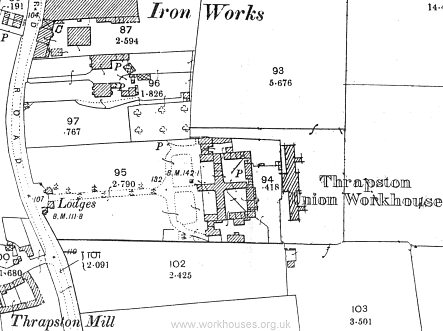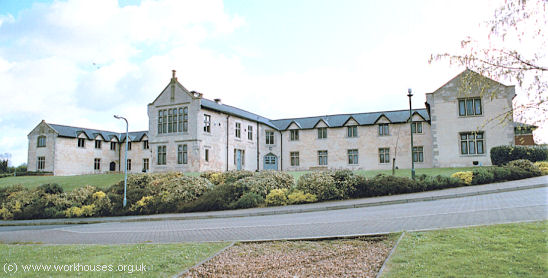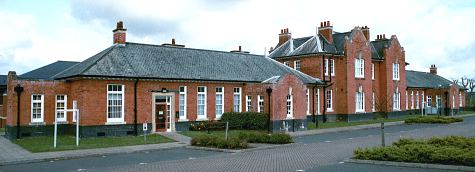Thrapston, Northamptonshire
Up to 1834
A parliamentary report of 1777 recorded parish workhouses in operation at Brigstock (for up to 30 inmates), Denford (12), Raunds (36), and Thrapston (16).
After 1834
The Thrapston Poor Law Union formally came into being on 30th November 1835. Its operation was overseen by an elected Board of Guardians, 30 in number, representing its 26 constituent parishes as listed below (figures in brackets indicate numbers of Guardians if more than one):
County of Northampton:
Great Addington, Little Addington, Aldwinckle [Aldwincle] All Saint's, Alwinckle St Peter's, Brigstock (2), Chelveston cum Caldecott, Clopton, Denford, Hargrave, Islip, Luffwick or Lowick, Raunds (2), Ringstead, Slipton, Stanwick, Sudborough, Thrapston (2), Titchmarsh (2), Twywell, Woodford.
County of Huntingdon:
Brington, Bythorn, Covington, Keyston, Molesworth, Old Weston.
The population falling within the union at the 1831 census had been 11,099 with parishes ranging in size from Clapton (population 90) to Raunds (1,370) and Thrapston itself (1,014). The average annual poor-rate expenditure for the period 1833-5 had been £8,801 or 15s.10d. per head of the population.
A Union workhouse was built in 1836 at a site to the south of Thrapston. The architect was William J Donthorn who was responsible for the design of many workhouses in the east of England including those at Ely and Wisbech in Cambridgeshire, and Oakham and Uppingham in Rutland. The Poor Law Commissioners authorised an expenditure of £4,400 on construction of the building which was intended to accommodate up to 200 inmates. Its location and layout are shown on the 1901 map below.

Thrapston workhouse site, 1901.
The design was loosely based on the model cruciform plan published by the Commissioners in 1835, with four ranges radiating from a central octagonal hub. However, at Thrapston as elsewhere, Donthorn design had much foreshortened front yards, and larger diagonally-divided yards to the rear. The central projecting range at the front contained the administrative offices.

Thrapston from the west, 2000.
© Peter Higginbotham.
A long building at the east of the workhouse was a later infirmary block, probably dating from around 1900.

Thrapston from the south-east, 2000.
© Peter Higginbotham.
The surviving parts of the building are now used as local council offices.
Children's Home
The Thrapston Union operated a children's home at The Delves, Marshall's Road, Raunds. In 1924, the home could house up to 26 children, with F. Newey as the superintendent. The property no longer exists.
Staff
Inmates
Records
Note: many repositories impose a closure period of up to 100 years for records identifying individuals. Before travelling a long distance, always check that the records you want to consult will be available.
- Northamptonshire Record Office, Wootton Hall Park, Northampton, Northants, NN4 8BQ. A wide variety of records survive including: Guardians' minutes (1835-1930, with gaps); Births register (1839-1932); Deaths register (1837-1933); Admissions and discharges (1901-33); Addresses of pauper's friends (1884-1932); Bathing register (1916-26); Register of inmates' property (1926-33); etc.
Bibliography
- Higginbotham, Peter The Workhouse Encyclopedia (2014, The History Press)
Links
- None.
Unless otherwise indicated, this page () is copyright Peter Higginbotham. Contents may not be reproduced without permission.


